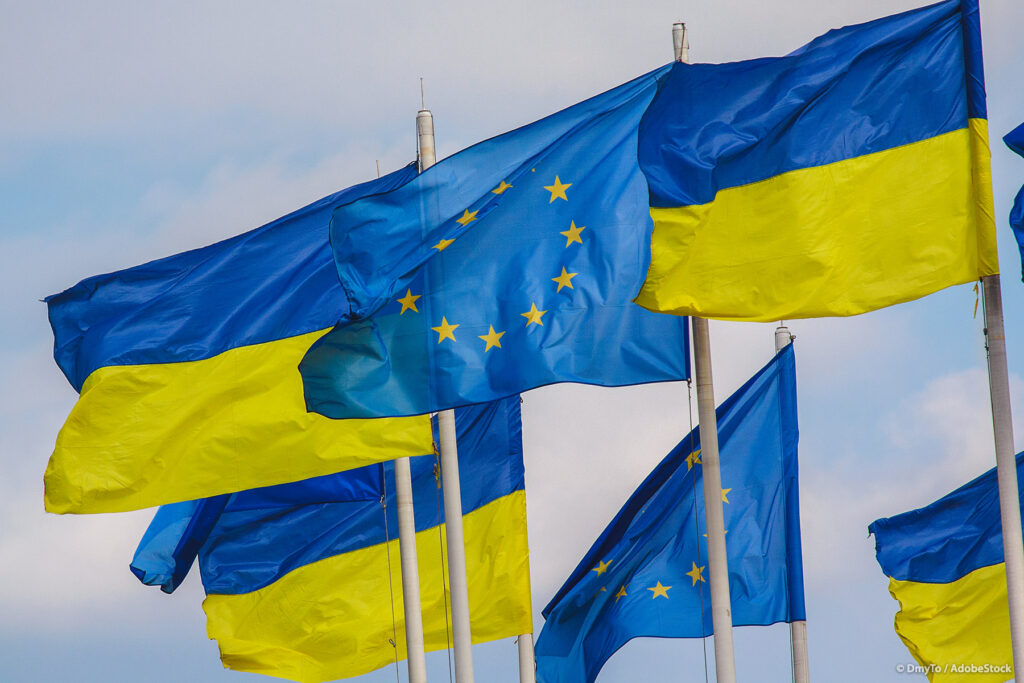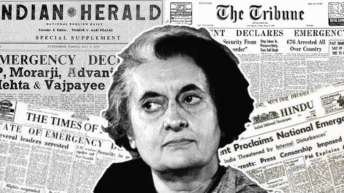|
Listen to article
Getting your Trinity Audio player ready...
|

Prime Minister Narendra Modi’s recent visit to Western Europe confronted him with the current situation on the continent where the almost obsessive focus on COVID of the last two years has been replaced by what some cynics call compulsive Ukrainism. India’s balanced and objective position in the conflict is often criticized in the European major Media which tend to broadly follow the US cues in such matters and claim that they don’t understand New Delhi’s failure to abide by international law and ‘democratic principles’. The unanimous official line among NATO members and their associates is that Russia is committing a barbaric, unprovoked and unjustified act of aggression against its long suffering, smaller democratic neighbour (in fact no more democratic than Russia itself and visibly under the control of foreign powers) which has every right to choose its own destiny as a member of both the EU and NATO.
As a reaction to this unprecedented breach of the peace, in their view, Russia and her non-dissident citizens must be excluded from the community of civilized nations through sanctions and punishments imposed by “free world leaders’ acting as prosecutors, judges and executioners. Yet, the Russian military campaign would not generate so much abhorrence from those States if it was not a direct challenge to their receding planetary supremacy. Moralistic indignation is also a wrapper for geopolitical aggravation.
The heads of the governments who hosted the Indian Premier delivered to him tacitly or explicitly a call to rally the ‘righteous’ side, especially the leaders of the eminently politically correct Scandinavian nations, some groomed by the Davos Young Leaders Forum, who proudly profess their unconditional rejection of war as a tool of policy although they readily join in waging economic warfare as members of the NATO camp.
The German Chancellor tried to make Narendra Modi espouse his country’s position on Russia as part of the bilateral declaration but had to compromise as India would not sign on a one-sided verdict on the Ukrainian issue. French President Macron was more nuanced, in keeping with the privileged relationship his country wishes to preserve with New Delhi. Indeed, the French official actions and statements in the conflict are illustrative of the predicament and confusion that ail European states. As NATO members they must toe the line set by the Americans and yet their strategic and economic interests demand that they keep at least business-like relations with the Russian Federation and with China as well. Accordingly, Emmanuel Macron has unsteadily navigated between pledges to support Ukraine ‘politically and militarily’ – which in essence implies helping Ukraine to kill Russians – and repeated attempts at mediation with Vladimir Putin as if France were a neutral party. Although trying to make peace while supporting Ukraine’s position is a perfectly legitimate stance one cannot wish for everything to end well while vowing to punish Russia for alleged crimes against humanity without waiting for the findings of an impartial fact-finding inquiry.
What we are hearing today in Europe and North America is a lot of official hysteria and unverified accusations, mostly as an echo chamber for Vladimir Zelensky’s government in Kyiv. War is dreadful and that atrocities are probably being committed by the belligerents as happens in many other military conflicts worldwide but Ukraine is far from defenceless and has generally opposed a dogged resistance to the Russian forces which are smaller in numbers than the Ukrainian military. There are several para-military militias in Ukraine that swear by Nazi racist concepts and openly revive the memories of Third Reich SS assault troops. The Red Army has lost thousands of men and a few top officers (allegedly killed with the help of US advisers and tracking technologies), unlike the US armed forces which in Yugoslavia, Iraq, Afghanistan and other recent theaters of intervention prided themselves on inflicting far more casualties among the peoples they attacked than they ever suffered in their own ranks while their own commanding officers kept out of harm’s way.
There is growing evidence that after steadily bombing for years, since 2014 the dissident provinces of Lugansk and Donetsk the Kyiv Government was planning an imminent wider operation to recover the Donbass and Crimea with western military advice and support. It is in that context that the Russian push into Ukraine should be understood.
Indeed, the United States leadership has sought to bring Russia down and exclude it from international fora for the last fifteen years while working to prevent an economic and strategic rapprochement between Western Europe and Eurasia according to the Churchillian prescription: Keep the US in, keep Germany down and keep Russia out.
Instead of trying to mitigate the damage and work towards a compromise agreement the western bloc has openly called for outlawing Russia in the hope of achieving regime change there. Such threats, especially when there are few realistic prospects for carrying them out, can only harden the resolve of the other side not to yield. Furthermore, slapping sanctions outside the UN rules has no basis in international law and persecuting individuals not proven guilty of anything because of their nationality, through arbitrary financial and other penalties is a violation of the most elementary principles of justice and legality. There is an appalling degeneration of international standards induced by successive American leaderships imposing the ‘rules’ that they edict at their convenience from time to time but do not apply to themselves or their own citizens.
It is apparent to all those western commitments or obligations (such as financial securities or private property rights) are conditional and may not be honoured by the US State and some of its confederates if the lenders, depositors or owners don’t abide standards set in Washington D.C. This has become a worldwide predicament since specific American laws and court decisions have been made applicable to foreign states and citizens by the legislative and judicial authorities of the country.
A stark consequence of this power grab abroad is the increasingly frequent violation of diplomatic conduct from US authorities with foreign diplomats representing out-of-favour states and, unfortunately some European states have begun to imitate that uncouth behaviour.
It is a disconcerted and disunited continent, threatened by the specters of scarcity, social unrest, disorder and conflict that Prime Minister Modi visited this month. Most Europeans are aware that they won’t be able to satisfactorily replace the vital supplies of oil, gas, raw materials and even food staples which their leaders wish to do without in order to punish Putin. They also realise that they will have to support Ukraine and rebuild it at their cost since the Americans will only flood it with weapons under a lend/lease programme which will indebt the country for generations while boosting US industrial exports. Predictably, many Ukrainian refugees will remain in western Europe given the parlous socio-economic conditions back home. All that shows the inability of the local governments to chart their own foreign policies, bound as they are by their NATO military obligations and the policy decisions of the EU whose leading members now wish to eliminate the unanimity requirement in decision-making so as to deprive smaller countries of their remaining say. The drive to rapidly include Ukraine in the European Union, proclaimed by the President of the Union, Ursula von der Layen (who usually voices the American desires), is opposed by President Macron who has stated that it would take ‘years or decades’ to actually accept that devastated and unstable country into the EU. There will be many more debates and clashes within the EU and NATO, regarding the inclusion of new members at a time when some of the current ones are tempted to follow the British precedent by leaving an increasingly dysfunctional Union bullied from the West, undermined from the East and overrun by immigrants from the South.






Add comment